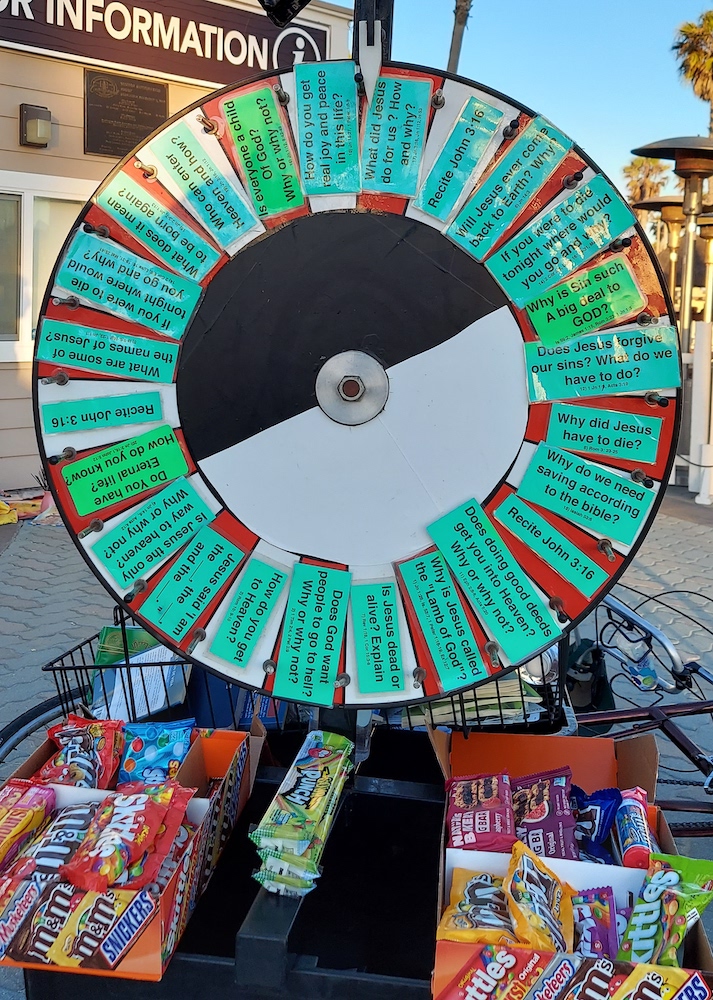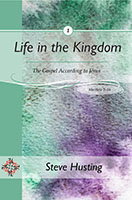A study in 2 Peter 1:1-4.
1:1
“Simon Peter,”
This writer’s name is Simon. After he glimpsed the truth of the glory of Christ, our Lord gave him a new name, Peter, a rock. He now wears that name to remind him and us of that confession, that Jesus is the Christ, the Son of the living God. Since the coming of the Spirit, the reality of that name has marked him.
Simon is the “before” portrait. Peter is the “after” portrait that testifies to the life-changing power of the revelation of Christ on his consciousness.
The Messiah has come in His kingdom. He is not another fallible politician, king, or rich businessman, but the Son of God who will make all things right, transforming into His image all who confess Him as Lord.
Question: does your confession of His name mark you as one who is changed by Him and committed to Him?
“a servant and an apostle of Jesus Christ,”
Peter sees himself primarily as a servant, for he listed that term before his calling. If we belong to Jesus and serve Him, seeking His will and doing it, then we will be trained for the calling He has in mind for us.
We don’t make up our calling. The realization of our calling is clarified by doing His commandments. All Christian callings are callings of service to the Lord and to man. Those who serve Him well are laying a firm foundation for future growth and fruit in the calling.
This verse is the “from” part of the epistle, who is writing the letter. Let us listen carefully to what a fellow-laborer has to say, one who has been changed from one name to another by God.
Question: are you a servant of God by following His commands in the Word, or by following your own ideas of what to do?
“to them that have obtained like precious faith with us”
This is the “to” part of the epistle. Peter is writing to people who have the same kind of faith he has. To those who hear from Jesus as their Lord and do what He says.
We received our faith through the Word of God (Romans 10:17). The Holy Spirit, writer of the Word, impressed its truths on us, pointing us to Jesus as Lord and Savior. We accepted the truth for ourselves and the Spirit regenerated us; we became born again. The Spirit moved in and we became those who could apprehend spiritual truths and live according to them.
But we are to continue the cycle of getting truth from the Word and responding to it by faith. Romans 10:17 says, “Faith comes by hearing and hearing by the Word of God.” When we read the Bible with a humble heart, the Word will give us direction. We will “hear” the Lord telling us what to do. If we are His sheep, we will obey it and follow Him (John 10:27). This faith that helped people get through their trials in past centuries will work for us today. That’s because the faith is based on a Person who has all power to make all His promises come true.
As we shall see, it is a precious faith because through it we escape from all the sin and deceptions of the world, the flesh, and the devil. Through it we access all the promises of God. Through it we live as king’s sons and not mere men. Through it we please God in all things; we grasp heavenly realities; we glorify God. Through our faith in the Son, we can share in the eternal riches of the kingdom of God today.
Question: does our faith grow by hearing God speak through the Word, or by believing our own thoughts?
“through the righteousness of God”
We have received this gift of faith by the righteousness of God. God is righteous. He is honorable. When God offers a gift, you can be sure it is valuable. Sometimes what we’ve bought from the store or online turns out to be garbage. But our faith is precious and should be protected at all costs. God’s righteousness demands He give the best, and this He did by pointing us to His Son.
Precious faith will keep pointing us to the Son. Not to our works, thoughts, or personal beliefs. Not to sources like the world, the flesh, or the devil. Don’t be fooled by your eyes, feelings, situations, or wants. Precious faith will give us precious sight that keeps us on the narrow way that leads to life. Only a righteous God can give this kind of faith.
Question: how highly should we value God’s gifts relative to man’s gifts?
“God and our Saviour Jesus Christ:”
This verse tells us that Jesus who died and rose from the dead is not only a Savior, but God as well. This is one of several verses in the Bible that clearly shows that Jesus is deity. He is God and our Savior. Ponder John 5, which has several powerful passages of Jesus doing what only a God can do.
This Savior has saved us from serving sin to serving Him. This is the work of the Savior, to destroy the work of the devil and break the power of sin. As a new creation by the power of the Holy Spirit, we have a new master; so, whom will you serve? Never think that a habitual sin cannot eventually be broken by faith in Jesus. He specializes in rescuing us from sin.
Our precious faith keeps us by the Good Shepherd’s side: when we follow Him by faith, we put ourselves in the path of receiving God’s grace and help. Our meager strength is supplemented by God’s own power.
Question: since Jesus is God and Savior, can we trust Him to overcome our sins, including the sins we’ve given up fixing by ourselves?
1:2
“Grace and peace be multiplied unto you”
Peter, still in his introduction, is combining the Roman and Jewish greetings of the time. He desires that we have lives of grace and peace, especially power to overcome sin and mold us into Christ’s image of peace with God.
Peter is not writing this to rebels, for grace and peace is blocked for the disobedient, not multiplied. Our rebel flesh does not act in faith toward Christ, so grace cannot be released. Peace is not possible when one is acting contrary to the Prince of Peace.
With grace, or God’s unmerited help, multiplied to us, all of God’s good plans for us are possible. Our faith can be stretched to believe the most wonderful of promises that seem out of reach now. Grace is provided to help you reach beyond, and grasp what your own resources can’t supply.
When you find God’s grace empowering you to obey Him and abide in Christ, then peace is multiplied, too, as you marvel at His mercy. It expands the more we rest in Him.
Question: will you believe that the Lord is willing to take you beyond the boundaries of where you stopped?
“through the knowledge of God, and of Jesus our Lord,”
This grace and peace does not come through much book reading, but through God’s self-disclosure of His love, purpose, and power, and when we respond in humility to that revelation.
This “knowledge of. God” isn’t mere book knowledge. It’s knowledge accumulated from reading the Word with a thirst to know Him more. God “is a rewarder of those who diligently seek Him” (Hebrews 11:6). He will reveal Himself. If we seek Him with all of our heart, it means we make it our priority to know Him.
Grace and peace is multiplied when His true character is known. No longer “a hard man,” but the most loving Father ever. No longer hard to reach, but as near as your mouth. No wonder peace is multiplied.
Question: is knowing Jesus the priority of your life, or is He one of many balls you are trying to juggle? (Hint: if you truly know Him as God and Savior, you’ll know what to do about all the questions where you fall short.)
1:3
“According as his divine power”
His divine power grants us what we really need, not our physical strength, mental abilities, or street smarts. This is the conviction of the servant who has discovered the life of Christ within, and the power of the Spirit at work.
The servant, seeing spiritual realities that are too high to be grasped and carried out in his own strength, relies on this divine power. He expects God to use him and work through him. If he fails, then he was working in his own strength, but then he repents and surrenders for the next stage of co-laboring with God.
Question: does your prayer life reflect your need for God to work on your behalf?
“hath given unto us all things that pertain unto life and godliness,”
Everything regarding the empowering and equipping of the new creation in Christ comes by His divine power. That’s the great difference between the new life and the old. As the just shall live by faith, God releases what is needed. It’s a far cry from the burden and bondage of following endless rules and stressful regulations.
The grace and peace flowing to us comes out of Christ’s “fullness we have all received, and grace for grace” (John 1:16). This verse is in the past tense–His riches have already been given. It’s up to us to search the Scriptures and live out by faith what He made available to us.
Question: are you still looking to the world to get what God has already laid up for you in Christ?
“through the knowledge of him that hath called us [by and] to [his own] glory and virtue [excellence]”
Our calling is to express His own excellence. He is the image of all that is good, so He can’t call us to anything lesser. He formed us to be bearers of His image. That image was defaced by sin.
But as we learn what He is like and imitate Him (“through the knowledge of Him”), we grow up to be like Him in all things. He reveals Himself; then we see new possibilities in ourselves (2 Corinthians 3:17-18).
When the local church is learning of Him, with “Christ dwelling in our hearts by faith” (Ephesians 3:17), we as a body are “filled with the fullness of God” (3:19) as we forgive one another, encourage one another, love one another, and express the various aspects of God’s love. We see God’s character on display in the body. This happens “as we comprehend” with all the members of the body (3:18), who are likewise expressing His love (3:17). Knowing Him, we become like Him, and God displays the fullness of our calling in such a body.
What forces are shaping you now? What is your identity based on? Politics? Business and money? Home life? Illness and disability? The American Dream? Sinful impulses?
When God calls us to live, His standard and vision is of His own life. As Christ dwells in us by faith, we imitate the life of Christ–in whom the Father dwelt by faith (John 14:10).
As Christ’s ministry was by the power of the Holy Spirit, so it is with ours. Don’t make the mistake of thinking that to imitate Jesus means merely to be outwardly nice and kind, and not to imitate His inward faith. It means for His life to work through you as the Father lived through Him by faith (John 14:9-10).
Paul consciously apprehended this reality when he said, “it is no longer I who live, but Christ lives in me” (Galatians 2:20). His pursuit of knowing God went from theory to reality–God lives in him. He also testifies that he lives “by the faith of the Son of God” (Galatians 2:20). We imitate His faith, not just His work. His works were the expression of His faith, not the other way around.
Question: do you believe it will be worth it to carve out time specifically to seek and know God?
1:4
“Whereby are given unto us exceeding great and precious promises:”
God keeps on giving. He has given us assurances, called promises, that focus our hope on Him alone. Every promise is precious because each one reveals something wonderful to the one who seeks after God. They say much about the One who makes guarantees to sinners like us. The Lord God Almighty vows that He will do great things for us.
They are exceedingly great and precious because they shape our thinking as children and sons of God. How does a child of the King reason? According to the promises. How does the new creation live? According to the promises. Where our minds line up with Scripture that honors God, we are living the life of Christ by faith. Through them we have hope. We are loved. We have a destiny shaped by God.
Question: what does a promise from God to you say about Him?
“that by these ye might be partakers of the divine nature,”
Partakers are people who share something in common. In this case, it’s the divine nature. But isn’t that a blasphemous thought? No, for this divine nature has already been expressed in the earlier verses. Serving God with the calling God gave us; living by faith in God; Jesus as Lord and Savior over us; grace and peace multiplied to us; the Spirit giving us knowledge of God and Christ; His divine power working in us; receiving all grace and help to accomplish His will and calling—then we are expressing His divine nature within these jars of clay.
All these blessings are “by these” promises, words of love from the Son who gave us the gift of Himself.
Sharing in the divine nature, we are not gods, but the Father and Son are to live through us (John 14:22-23). That is how it happens. Not by man’s might, nor by woman’s power, but by His Spirit in us.
As we do His righteous acts by faith, God’s righteousness is revealed. As our faith works in love, God is working through that same love (1 Corinthians 2:12-13). When we believe Jesus and act on it, God is already working (John 6:29).
Question: since God is love, and you share His divine nature, what kind of person will you be if you responded to His promises?
“having escaped the corruption that is in the world through lust.”
We need to see the greatness of the Savior’s all-encompassing spiritual rescue. If we only read the Bible for information that doesn’t change us, then we’ve missed the point of having a Savior.
Through Him we escape the corruption that is in the world. The corruption that ruins the world—had infected us. What was good became evil. What was holy became a wretch. What was useful became unfit for God.
The “lust” in the verse is defined as “a longing (especially for what is forbidden)” in Strong’s definition, and is not limited to sexual lusts. The world apart from God’s holy influence is decaying through man’s constant demands upon it for selfish ends. We’ve all heard the drumbeat of a worsening environmental disaster growing louder and louder. But it’s not only the physical environment that’s being corrupted by man’s wastes on land, air, and sea.
The world in turn entices us and corrupts our desires. We develop improper desires that bring our lives into conflict with God’s kingdom. The world says the American Dream and its leisure hours should be your highest priority. God says the kingdom of God and His righteousness must be first place in our pursuit.
Where Jesus is God and Savior, we follow Him and escape the corruption. Be not conformed to this world, but transformed by the renewing of the mind into the Son’s likeness. Through the great and precious promises renewing our minds we escape, setting our renovated souls on the spiritual values of God’s kingdom.
The world offers us paltry gifts, but the promises show us God’s divine power available to us for life everlasting, both now and for ever.
Let’s be sure to renew our minds with those promises repeatedly, lest we let them slip.
Question: do you have a large God and Savior who saves you from your inner corruption, or a small god where you need to borrow man’s devices and ideas to “manage” your sins and addictions?
To be continued… Part 2 will cover 2 Peter 1:5-11.








